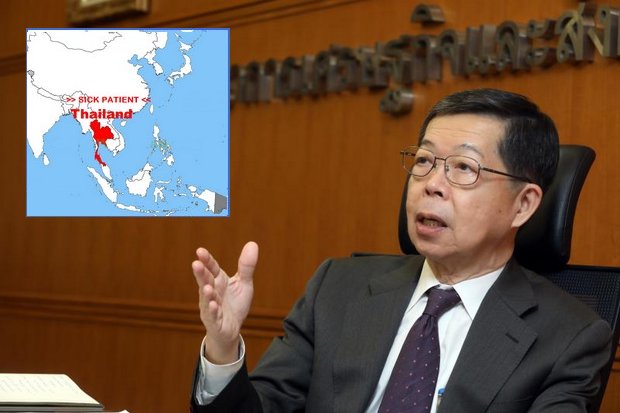
The long-awaited land and buildings tax that won cabinet approval yesterday is expected to generate more than 64 billion baht for government coffers when it takes effect next year.
According to Finance Minister Apisak Tantivorawong, 60 billion baht is to come from commercial buildings, 4 billion from residences and 50 million from agricultural land. All income will be used for local development.
The new tax is designed to expand the national taxpayer base, especially in asset-based taxation, with an aim to increase efficiency of tax collection among local organisations, narrow income disparity and improve land utilisation nationwide.
The bill sets ceiling rates of 0.2% of appraisal value for land used for agricultural purposes, 0.5% for residences, 2% for commercial use and 5% for vacant or undeveloped land.
The tax will be levied on first homes and land used for agricultural purposes with appraisal prices starting at 50 million baht, with the rate applied to the amount exceeding 50 million baht.
Owners of first homes and farms with an appraisal price below 50 million baht will be free from the tax liability.
The tax will also apply to second homes on a progressive basis, with rates of 0.03% to 0.30% for homes with an appraisal value of less than 5 million baht to more than 100 million baht.
For vacant or undeveloped land, the tax rate will be imposed at 1% for land left vacant or unused for 1-3 years, 2% for 4-6 years and 3% for more than seven years.
According to Mr Apisak, there are 8,556 residential units that have an appraisal price of more than 50 million baht, mostly in Bangkok and other big cities. That means about 99.96% of residences nationwide are free from the tax liability.
In a bid to reduce public opposition, the land and buildings tax was watered down several times. After final approval, the tax will replace existing house, land and local development taxes.
The land and buildings tax is part of government efforts to boost asset-based tax income, reduce economic inequality, improve land distribution and increase the use of land nationwide.
Atip Bijanonda, president of the Housing Business Association, said taxation of housing units priced at 50 million baht or more would have little impact on most homeowners, as this pricing segment accounts for less than 10% of the country's total.
"Most people own a house priced much lower than that," he said. "The property tax law will benefit the country because it can generate revenue to local administrations. This revenue can help improve utilities, which in turn will benefit taxpayers."
He said the land and buildings tax would prompt some landlords who own many plots, particularly in prime locations where land values are high, to develop the plots or sell them to avoid paying the high tax rate.
"The law can help land utilisation," Mr Atip said.
Surachet Kongcheep, associate director of property consultant Colliers International Thailand, said the minimum price of a housing unit affected by the tax of 50 million baht was no cause for alarm.
"If it were set at 10 million baht or more, the panic would be much greater because the segment of 10 million baht or more accounts for 30%," he said.



